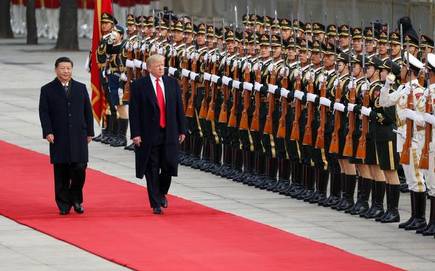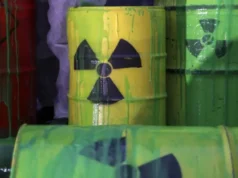US And China Now Strike Against Each Others Media
 In recent days, the US government has made a dizzying array of moves against China. On February 18, the US State Department listed five Chinese media outlets as foreign missions to oversee their activities in the US. One day later, US Secretary of State Mike Pompeo accused China of restricting freedom of the press after China revoked the credentials of three Wall Street Journal reporters for an offensive headline made by the newspaper that was taken as a clear example of racial discrimination against the Chinese people. Then, some US officials advocated the expulsion of dozens, if not hundreds, of Chinese journalists who are now stationed in the US.
In recent days, the US government has made a dizzying array of moves against China. On February 18, the US State Department listed five Chinese media outlets as foreign missions to oversee their activities in the US. One day later, US Secretary of State Mike Pompeo accused China of restricting freedom of the press after China revoked the credentials of three Wall Street Journal reporters for an offensive headline made by the newspaper that was taken as a clear example of racial discrimination against the Chinese people. Then, some US officials advocated the expulsion of dozens, if not hundreds, of Chinese journalists who are now stationed in the US.
These moves are not isolated examples. They show the both government’s hostile attitude towards each others media and their alarming strategic intentions toward each other.
Since the two countries established diplomatic ties more than 40 years ago, nongovernmental exchanges between China and the US have been increasingly intensified. More and more journalists have stepped into each other’s land and sent back first-hand reports to their home countries. This has greatly enriched the understanding that people from the two countries have of each other. It has also effectively promoted the exchange of students, tourism, and communication between businesses. This is a remarkable achievement in the history of China-US relations.
However, since last five years the channels of communication between China and the US have narrowed, and mutual understanding and trust have been impacted, with the news media bearing the brunt.
It’s well known that the relationship between Trump and Jinping is tense. Both the governments have become increasingly intolerant of negative coverage by mainstream media and have shown a growing tendency to meddle in media opinion.
However, compared to how the US media is treated, the Chinese media in the US have received much worse treatment. For a long time, Chinese media in the US have been subject to many restrictions and have not enjoyed the same interview opportunities and relevant arrangements as their counterparts from other countries have in the US. This is not due to the incompetence of the Chinese reporters. In fact, most of the journalists accredited by the Chinese media outlets to the US are among the best in their organization. However, when it comes to China-related affairs, we often see that Western media reporters called on to ask questions at news events in the US.
This kind of treatment has been also reciprocated by the Chinese Government to US Media.
The Trump administration had designated five Chinese state-owned media outlets as foreign missions. This is not only a violation of press freedom, but clear discrimination against the Chinese news media. This raises several questions. What major mistake has the Chinese media made in the US, and what illegal activities has they conducted to deserve such strict supervision and cold treatment? Why are so many other foreign media outlets with official backgrounds not listed as agents or diplomatic missions?
The unfair treatment of the Chinese media by the US government has a more sinister motive: To win the China-US strategic competition. US’ worries about China’s rise have a long history, and have reached a climax with Chinese actions in South China Sea. Many in the US government advocate a tough approach to countering China’s rapid rise in power and influence. And the pace of the internationalization of Chinese media has led to concern in the US.
The US labels Chinese media outlets as “communist” ones. The US believes their activities in the US are aimed at collecting intelligence. With the hype of some American politicians, the Chinese media have become increasingly disrespected and unpopular. From this perspective, as long as the US does not change its attempts to contain China, the suppression of Chinese media will not stop, and the work of Chinese media in the US will be more difficult.
The recent moves by the US government will not achieve the results it wants. The deliberate discrimination against the Chinese media will only invite retaliation from China. Such actions are likely to provoke retaliation from China, which could cause collateral damage to the US media in China as well.



